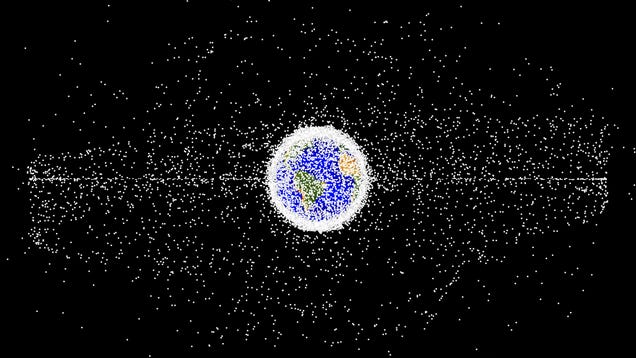
After more than two years of radio silence, Donald Trump has returned to Facebook, officially.

After more than two years of radio silence, Donald Trump has returned to Facebook, officially.

What goes up must come down, and that includes all of the satellites, rocket stages, and junk that humans have launched into space. A group of scientists is sounding the alarm about how that growing cloud of debris orbiting Earth may cause us trouble in the future, and are championing a global approach to governing…

Researchers studying macaques in one of Thailand’s national parks made a surprising discovery: While cracking nuts, the monkeys make stone flakes that look an awful lot like the flakes that scientists have attributed to ancient human. The finding means that some of the material held up as the earliest evidence of…

It’s unfortunately arriving a little too late to woo whoever was your Valentine this year, but next month, you’ll be able to pre-order a 3D printer that swaps melted plastic for melted chocolate, allowing you to

This story was originally published by Grist. You can subscribe to its weekly newsletter here.

As global temperatures and emissions rise, it’s going to become harder to breathe. Air quality issues won’t just come from human activity, though—the natural world could also release more pollution in a rapidly warming world.

Pesky lunar dust is an annoying obstacle for astronauts landing on the Moon—it sticks to pretty much everything. New research from Washington State University may have cracked the code for keeping space suits dust-free, in which pressurized liquid nitrogen was used to literally blow the dust from surfaces.

As the race back to the Moon heats up—with plans for long-term human habitation—reliable communication is a fundamental issue. With dozens of plans for experiments of various sizes and scopes needing to communicate with each other and Earth, the European Space Agency has opened a call for help in building the required …

How many times has a game of basketball been thwarted by a ball that was too flat to bounce?

When delegates from 50 countries met in the Netherlands this week to discuss the future of military artificial intelligence, human rights activists and non-proliferation experts saw an opportunity. For years, rights groups have urged nations to restrict the development of AI weapons and sign a legally binding treaty…